- Home
- Jean R. Ewing
Love's Reward Page 18
Love's Reward Read online
Page 18
“Then it was this partisan killed her?”
“Yes. But Tarrant saw it all clearly and he had just reloaded. He’s a superb shot. He could have winged the fellow and spoiled his aim, even though it might have exposed his own body to French fire for a moment.”
“Yet he did not?”
“On the contrary, he laughed as the man shot her down. I was the only one close enough to hear him. ‘We can die by it, if not live by love,’ he said. Then he dropped like a stone and rolled to safety behind a piece of broken wall. Juanita never made it to her horse. Her husband willingly sacrificed her, rather than risk himself. She was killed instantly.”
“Oh, dear God! And no one else could stop it?”
“I tried. My shot missed. When I tried to get to a better position, I was knocked over the head. It was moving into hand-to-hand combat. A skirmish like that is nothing but chaos anyway, and it was getting dark. I learned afterward that the French finally scattered. Juanita was left where she’d fallen, and Tarrant got me away. He carried me back to camp unconscious, slung over my horse’s back.”
“Did you never confront him? Ask him why he let it happen?”
Richard stood and stalked to the fireplace, poking fiercely at the coals.
“Of course. We had been close friends. He looked at me with that bitter sarcasm and said, ‘Don’t preach to me about chivalry, please, Acton. It’s better like this. I was mad to marry her.’ He seemed to be playing host to the devil.”
“Yes,” Joanna said faintly. “I have seen him like that.”
Richard spun about. “When I tried to express sympathy over her death, he laughed aloud. ‘Do you really believe that a black-hearted rake could bring a Spanish wife back to England when he is heir to an earldom? What the devil would the Black Earl have said?’ I had hoped that he could offer me some reason, some excuse for what he’d done. Instead, I wanted very badly to kill him. Before he could say more, I told him so.”
She had no idea where the strength came from to continue. She felt faint and ill, but now she had to hear it till the end.
“Did you call him out?”
“He had been wounded in the leg and was in the hospital tent.” Richard gave a wry smile. “And he had saved my life, of course. So I had to content myself with avoiding him, until the war anyway separated us. I wish I hadn’t had to tell you this, Jo. And I wish to God that you hadn’t married him. I did tell Father, but he didn’t care.”
Joanna stared at the curtains. A tiny pattern of flowers was worked into the fabric.
“Why?” she said at last. “Why did he save himself and let Juanita be killed?”
Chapter 13
After Richard left, Joanna sat on the chaise longue and thought about it.
She had taken Fitzroy into her arms and her heart. Yet he had not hesitated to abandon his first wife to save his own hide. Then he had joked with Richard, her brother, the man who had witnessed it, with that violent, wild levity.
She had seen that he was driven and haunted. She had not thought him capable of this.
Putting both hands over her eyes, she lay back. A crunch and rustle startled her upright.
Joanna jumped up before she remembered: Mrs. Morris, and a package for Fitzroy.
She felt behind the cushion and pulled out a small, flat parcel wrapped in brown paper. Something that Mrs. Morris’s brother, Ned Flanders, who had been Fitzroy’s groom and had died in a brawl, wanted his old Peninsular officer to have.
Yesterday it had seemed none of her business, but now, after what Richard had told her!
And after what had happened with Fitzroy last night.
He had warned her. There was no turning back.
Joanna crossed the room to Fitzroy’s desk and found his paper knife. She cut open the brown wrapping and tore it away. Inside lay a book with shabby leather covers, marked with a water stain. It had seen serious wear and bad weather.
As she opened the cover to look inside, a footman stepped into the room to announce a visitor.
Joanna thrust the book into her pocket as the lady swept in.
Lady Carhill, impeccably dressed, her blond hair arranged in an enchanting confection of curls beneath a smart little driving hat. A faint dusting of powder marked her face, but it was not enough to hide the redness around her eyes. Lady Carhill had been crying.
“Lady Tarrant,” she said, holding out one hand in a pleading gesture. “Something dreadful is going to happen. Can you come with me? Now? My carriage is outside.”
* * *
Fitzroy sat quietly on his exhausted horse and surveyed the house. Lady Kettering had given him explicit instructions. He had followed them to the letter. A trail of meetings and journeys, exhausting and absurd, had finally resulted at six that morning in directions to this forgotten relic of a more dangerous age.
Yet by riding like the devil he was here an hour early.
The Peninsula had taught him that it usually paid to reconnoiter the ground before facing enemy fire.
Yet he had the unholy suspicion that his mysterious enemy would know that and would be counting on it, reading his mind, guessing his every feint and counterattack. It had been happening ever since this vile business began.
Forcibly he was reminded of similar times in the Peninsula and the deaths to his comrades that had resulted.
He was not more than ten miles from London, but this place was as secluded as it had been in the fifteenth century when it was built. He was confronting a fortified manor house, the crenellated battlements reminiscent of a castle, yet the windows defended only by heavy wooden shutters. The shutters were closed, hiding anyone that might be watching.
If he moved out of the trees that shielded him, his unknown enemy would see him.
Pondweed grew thickly in the sluggish remains of a wide moat enclosing the garden. A stone bridge across the water offered the only entrance. No doubt it was well guarded. The front door under its narrow porch had been designed for defense, not welcome.
So, even though Lady Kettering had instructed him to cross the bridge, he would not really be expected to do so.
Which left the moat.
Yet he didn’t relish the idea of facing whatever lay inside the house with his powder wet and his pistols useless, his reactions slowed by wet clothes—assuming he survived the attempted crossing. The bottom of the moat was obviously feet deep in soft mud. The water was thick with coiling stems and roots. Too deep to wade and a very nice death trap for a swimmer.
Leaving his horse tied in the trees, Fitzroy edged through the woods on foot, studying the land and the house, learning what he could.
At the back of the house lay a small stable block. A dun horse looked out over its half door and shook its head against flies. The rump of a companion gleamed in the next stall. The stable created the only blind spot on the moat for watchers in the house.
It was no surprise that several burly men sat in an empty stall near the dun horse, playing cards, stopping every once in a while to listen. Others stood on guard in the shadows.
If Fitzroy plunged into the moat behind the stable and emerged, dripping, they would catch him.
No trees grew conveniently over the water. No forgotten boat lay tied in the weeds.
Fitzroy scoured the woods for some old shed, perhaps, from which he could break away a board.
He found nothing but an abandoned woodsman’s camp and the ashes of his fire. A clearing had been made there for coppicing. Saplings and shoots from the stumps of large trees grew densely together, thin and tall as they reached for the sun. The strong, supple young growth was used for everything from broom handles to sheep hurdles.
He almost turned away before the answer came to him: sheep hurdles!
With the sword from his cane he rapidly cut another swath in the coppice, choosing the longest, most flexible shoots. He worked in a fever to weave them together into a rough framework.
Then he made another.
They were awkward to carry to
the moat, for the woodsman’s road led off in the opposite direction, and Fitzroy had to twist his way through the undergrowth with his burdens.
It was the work of half an hour, perhaps, and the crude hurdles would never have held sheep, but Fitzroy had to trust that they would hold him for long enough. Thank God he had also found a couple of felled poles, just long enough to span the water!
Silently he ran back to his horse. He led the animal to the opposite side of the grounds from the stable. With a quick word and a pat, he let it loose. Sensing the other horses, his mount whinnied and crashed into the willows at the edge of the moat, searching for a way across.
The watchers at the stable leaped up and ran toward the sound.
Fitzroy raced back to his hurdles.
Moments later he was leaning against the stable wall. Only his boots were a little wet. Round one to him, perhaps?
* * *
Joanna sat next to Lady Carhill as the chaise rattled away from town. She was still wearing her old dress and her artist’s smock, her hair in a hasty bundle. Her companion formed a stunning contrast, blonde, elegant, beautiful.
Joanna did not notice. She was fighting the fear and confusion she had felt ever since Lady Carhill burst into the house.
“Is my husband in danger?”
My husband. Until death do us part. Fitzroy!
“I don’t know.” Lady Carhill pressed a handkerchief to her eyes. “I don’t know!”
“Where are we going?”
Lady Carhill turned to look at her. Her lovely face was puffy.
“I can’t tell you. I won’t tell you. There! Why did you marry him, when his heart still belonged to Juanita? Why?”
She glanced down at her paint-stained lap. “Do you think he still loves her?”
“I know he does,” Lady Carhill snapped. “That’s why he wouldn’t—”
“What? Wouldn’t what?”
“Become my lover, if you must know. He wouldn’t!”
Joanna felt her heart skip, like a colt allowed out of the barn. So what Fitzroy had told her was true?
“But I thought you said—” Her voice cracked a little. “At Lady Reed’s—”
“Oh, you silly girl! I was jealous of you. But how foolish that was. All that lovely gallantry and flirtation, and all the while he was hiding a broken heart. Has he bedded you yet? It makes no difference. You will never have any more of him than I did. None of us will. He belongs to a dead woman.”
She was sixteen. I married her.
So why had he let her die?
* * *
Fitzroy reached the wall of the house by dodging from bush to bush in the garden. The guards were still beating about in the undergrowth opposite his horse, which was now grazing peacefully. The original medieval inhabitants would never have allowed their grounds to become so overgrown.
No doubt four hundred years earlier the stone walls had been smooth, as well. Now the stone was pocked with weathering. Here and there, iron ties had been driven through the masonry to support the structure. It was just enough to give him hand and footholds to the roof.
Once there, he found a doorway in a corner turret that would lead him unseen into the house. It took some hard prying, but the rusted lock was weak with age. At last it gave way to his efforts.
He had just opened the door when he heard horses.
Fitzroy flattened himself against a chimney and watched a carriage turn to cross the bridge. He recognized the team: Lord Carhill’s nags.
Then he saw the face behind the glass.
Hair black as ebony, skin white as snow, lips red as blood, her mouth set and her chin held high.
Joanna!
Memory flooded him, weakening him for a moment: dark hair spread riotously over a rainbow pillow; white skin—like cream with coffee—against his; carmine lips swollen and sweet with her generous passion. Only last night he had really made her his wife.
Yet, while she still slept, he had abandoned her for his dark mistress, intrigue.
Joanna, dear heart, what the devil are you doing here?
His wife stepped from the chaise with Lady Carhill.
Somewhere below him the front door opened.
“Muy buenas dias,” soft female tones said in the pure Spanish of Madrid, as familiar as his own mind. “Hagan ustedes el favor de entrar.”
Please come in.
In an agony of grief, Fitzroy heard Joanna. “Why, good heavens! What an extraordinary surprise! How charming to meet you again.”
And the soft reply. “El gusto es mío.”
The impact of that hit like gunfire, a numbness, followed by unimaginable pain.
He allowed himself to feel it without question for a moment, letting the shock sink in, concentrating on allowing it to dissolve, relaxing, breathing, fighting for equilibrium.
It was what she had said to him, bravely gulping back tears, from the ruins of a stable in Badajoz.
He closed his eyes. Screaming, shots, the roar of flames in the background. Soldiers drunk on battle shock and wine reeling through the streets.
“You are safe now, Señorita,” he had said in Spanish. “Pray, come with me. I promise to protect you from this rabble. It would be my pleasure.”
And holding out her elegant little hand, Juanita had replied, “El gusto es mío.”
The pleasure is mine.
For one brief moment Fitzroy almost feared for his sanity. But I saw her die! Then he stepped into the dark well of the turret and ran headlong down the stairs.
He followed instinct and the faint trace of voices as he made his way through the dim house. From cracks between the shutters, light fell in brilliant, narrow bars across each room, casting the rest into shadow. He stumbled into a side table and an upright chair. He even pulled his pistol to threaten a tall candelabrum in the shape of a goddess.
The voices were clearer now.
He slipped around a heavy tapestry and found himself in the musicians’ gallery above the great hall. Darkness swallowed the spaces below him. Only two sets of candles flickered in their holders. Bars of sunlight striped the room like the marks from a flogging, but the rest was gloom, impenetrable as the grave.
Joanna sat near one stand of candles. She looked grim and determined and worried.
Lady Carhill had taken another chair and was nervously twisting a handkerchief in her lap.
A gentleman stood near them, leaning with false nonchalance against a wooden post, black with age.
Fitzroy knew him instantly, a man who lived in his dreams, whom he would know in the dark by the sound of his footfall: his brother, Quentin.
Their hostess sat in a high-backed chair at the head of the room. A black lace mantilla hid her hair, her midnight eyes lost in shadow. Yet one bar of sunlight slashed strongly across her lap, highlighting the richness of her dark red dress and striking brilliance from the ring she wore on her finger, a sapphire surrounded by diamonds.
He acknowledged it and the memories it brought back. The engagement ring that a British officer had given the girl he found crying in the ruins of a sacked Spanish town, a family heirloom, a symbol of love.
Unless we are being beleaguered by a ghost?
Thank God, thank God that he had crept into the house this way, had these few minutes of forewarning in private!
Had he come to the front door as instructed, he would have been thrust suddenly into this shadowed room, perhaps suffering from a beating, eyes still blinded by the daylight from outside. What might he have done in that moment of shock?
“He will be here soon,” the soft voice said, the Spanish accent faint and elegant. “Shall we have wine while we wait?”
She rang a small bell in the charmingly imperious gesture that Fitzroy remembered, and with a graceful nod signaled the servant who entered.
The man reappeared moments later with a tray and glasses. He set them on a large oak table, bowed, and retreated.
Quentin stepped forward to pour the wine. Each of the ladies took
a glass, while he swallowed three in rapid succession.
“About time, Señorita Gorrión,” Quentin said, setting down his empty glass at last. “Devilish thirsty work, destroying a man.”
Fitzroy heard the desperation in it, and the bravado. Quentin would always try to cover his emotions with sarcasm. It was a family trait.
“Will you greet your brother foxed, sir?” the Spanish voice asked with a hint of amusement.
“Good God.” Quentin poured yet more wine. His hand shook. “I had better, or he won’t recognize me.”
“I’m not sure you will recognize him,” she replied. “I doubt he will be boasting his usual elegance. My moat is remarkably slimy.”
Lady Carhill looked up. “What do you mean? Won’t he come to the front door? Won’t a footman bring him in here when he does?”
Fitzroy watched Joanna, her face stark and white. Why the devil had she been brought here to witness this? Anger burned in him, clear and bright, yet he could not allow his concern for her to deflect him from what he must do now.
“He will not come to the front door,” the Spanish voice said with a small laugh. “He knows the welcome that would greet him, if he did. No, he will try the moat, and my men will break him anyway.”
Quentin studied his wine. “And what do you plan then, Señorita?”
Fitzroy struck a spark from his tinderbox and lit the brace of candles standing in the gallery. The flames flared in the draft, causing them all to look up.
“Can the words of a crooked hunchback speak for her, Quentin?” he asked softly. “Richard of Gloucester, the most twisted villain in Shakespeare: ‘Plots I have laid, inductions dangerous, / By drunken prophecies, libels, and dreams, / To set my brother Clarence and the king / In deadly hate the one against the other.’ I am not the king and you’re not Clarence, but as brothers we can make do, I suppose, when drama is about to unfold.”
He perched casually on the railing and smiled at the lady Quentin had greeted by her maiden name: Señorita Gorrión.
“Must you always foment discontent, mi corazón?”

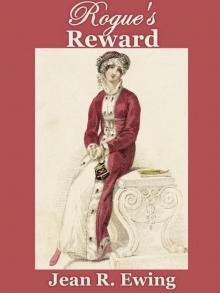 Rogue's Reward
Rogue's Reward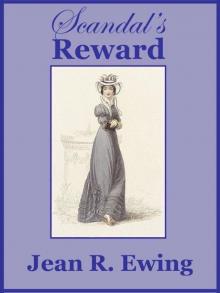 Scandal's Reward
Scandal's Reward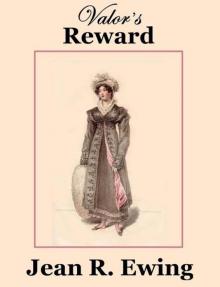 Valor's Reward
Valor's Reward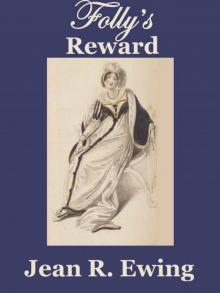 Folly's Reward
Folly's Reward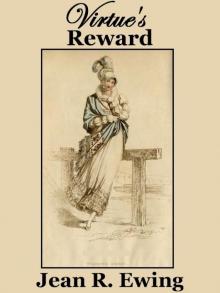 Virtue's Reward
Virtue's Reward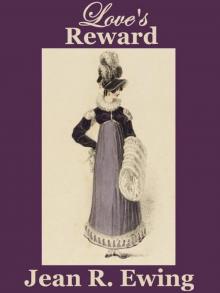 Love's Reward
Love's Reward